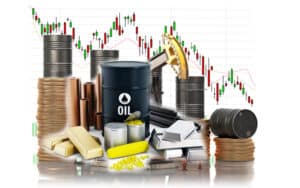In the fascinating world of financial instruments, two of the words most often referred to are CFDs (contracts for difference) and investing. Thanks to technological advancements, several ways of making money from the markets have evolved, one of which is the popularity of CFDs.
Every participant from all over the world has their unique opinion on where the price of a financial instrument will be in the near future. Speculators are always faced with the option of trading the CFD version of an asset or investing in it.
Ultimately, everyone desires profit, though the philosophies of achieving this goal are distinct. These fundamental differences prompt some beneficial study into the contrasts between trading CFDs versus investing, which this article will further investigate.
Primary differences between CFDs and investing
Firstly, let’s briefly define the two. A CFD or contract for difference is an agreement a trader enters with a broker who will exchange the difference immediately between the opening and closing value of a financial instrument without any physical ownership of the traded asset itself.
The contract can last indefinitely as the trader maintains the position’s margin or until it is closed for a profit or loss to their account. Put simply, most forms of online trading nowadays are CFDs.
Virtually everything ranging from currencies, equities, indices, bonds, energies, metals, commodities, cryptocurrencies, etc., are tradeable as CFDs thanks to leverage, decentralized liquidity providers, and the sheer size of speculator interest.
The term ‘investing’ is two-fold because, technically, someone trading CFDs is an investor; they are putting money into something with the expectation of a profit. However, when studying the two concepts intensely, investing is more of a long-term approach where investors, in most cases, have some possession of the traded product in question.
So, at a fundamental level, a CFD trader does not have tangible ownership of the asset they are trading, while an investor does in the majority of cases. For instance, a CFD trader can simply trade cryptocurrencies through an exchange on a charting platform, whereas the investor will prefer to own the coins outright.
We can apply this analogy with most financial instruments. Here are the other critical distinctions between trading CFDs and investing:
- Leverage: This mechanism is probably the main attraction in CFDs because it allows traders to open substantially larger positions with only a proportionally smaller amount. Like the cliché suggests, leverage is a two-way street. Any reckless misuse can lead to someone getting wiped out quickly, though it can also yield magnified returns quickly when used strategically.
In the traditional investing of an asset, there is no leverage. Investors need to commit the full value of the investment upfront. Hence, this approach is often reserved for wealthier individuals a lot of the time.
The advantage of investing is investors are typically never inclined to liquidate their positions through using too much leverage. Technically, an investor can keep their investment even when it’s losing value.
Among other reasons, this is because investors have a long-term view of the markets, unlike CFD traders who are only concerned about the short term. This discrepancy leads us to the next point.
- Philosophies: Trading CFDs is about aggressively capitalizing on short-term gains, while investors take a slower, buy-and-hold approach, where they wait for their investments to mature in years.
Hence, the time participation in the latter is much less than traders who need to commit more to stay in touch with the regular fluctuations in the markets.
- The ability to go long and short: Most traditional investments only allow the investor to buy (or go long). While they technically can sell at a later stage, this is not the same as actually going short. In contrast, CFDs permit traders to sell (or go short) without initially buying the instrument.
- Costs: Speculating in CFDs involves spreads, commissions, and overnight fees or swaps applying per position. In conventional investing, one does not deal with these costs.
Of course, investors will have to consider some charges upfront and when they decide to sell, along with possibly any taxes and stamp duty depending on where they reside. The latter is also relevant for CFDs.
Why do some prefer CFDs over investing?
Leverage has drastically lowered the barrier to making money in the markets. Therefore, it is possible to participate with small amounts of capital and realize a sizable gain over time. Traders have no worry over owning the underlying asset as they generally do in investing.
CFDs have allowed people to speculate in a range of unrelated financial instruments on one platform with minor restrictions on their execution frequency and ability to go long and short.
One of the big downfalls is the possibility of reckless over-leveraging. The time involvement is also much higher in trading, with a lot of complex analysis involved. Furthermore, as most traders tend to execute regularly, spreads, commissions, and swaps can accumulate over time.
Why choose investing over CFDs?
Some instruments have unique benefits when using the investing method. Let’s consider shares. One of the reasons investors love equities is because of dividends. By choosing the right stock, one can benefit from the natural appreciation of the share and the dividends paid out at certain times.
Many cryptocurrencies have a similar structure through yield farming, which involves lending, staking, and saving. Essentially, being an investor means one can benefit from the potential price increase and acquire more tokens passively.
It’s worth noting markets with this duality are few. As briefly mentioned, an investor can keep an investment even when it’s losing value, something that is typically not common with CFDs. Investing is also far less time-consuming, though this doesn’t take away the emotional stress.
The main disadvantages with investing are the time horizon is very long, and someone needs to have an incredible amount of patience. Furthermore, the upfront capital is typically higher, and one can’t usually go short.
Final word
Ultimately, no approach is better than another despite the debates that continually exist. Trading CFDs is more about short-term gains while investing is more about creating wealth. Certain instruments are better as tradable assets based on their inherent structure, while others are suited towards the latter.



